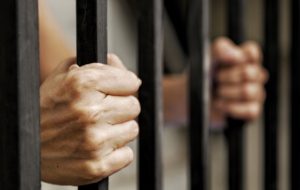What do you do if a loved one dies in prison? At Evans Moore, LLC, we understand the heartbreak and anger that come with losing a loved one in custody. Families trust us because we have the experience, dedication, and compassion to uncover the truth and fight relentlessly for justice in these complex and emotional cases.

When someone tragically passes away as a result of negligence, their family may have grounds to pursue justice through a wrongful death lawsuit. In some circumstances, if the inmate was completely reliant on prison staff to provide access to necessary medical care, a medical malpractice and/or civil rights lawsuit may also be appropriate.
Pursuing a lawsuit against a correctional facility, whether a county jail, local jail, or state prison, can be challenging due to the complex rules and regulations governing these institutions.
At Evans Moore, LLC, we have a proven track record of success with wrongful death cases involving jails and prisons. Our team knows how to uncover critical evidence, including surveillance footage, medical records, and investigatory files, to build a strong case. Our team partners with top correctional and medical experts to strengthen your case.
Why You Should Hire a Wrongful Death Lawyer
Time is of the essence for a number of reasons. You have the right to demand that an autopsy be conducted. Without a reliable autopsy, it can be very challenging to prove the manner of death. Another reason why it is important to contact an experienced, qualified attorney is to help preserve any evidence regarding the circumstances of the death.
At Evans Moore, LLC, we promptly serve the correctional facility with a ‘Do Not Destroy’ letter to safeguard critical evidence. This ensures that key evidence, such as video surveillance and photographs, is preserved. You may have additional legal advantages if evidence is destroyed after this notice.

Deaths in South Carolina correctional facilities are typically investigated by the South Carolina Law Enforcement Division (SLED). Your attorney can work closely with SLED, sharing relevant information to ensure accountability and a thorough investigation.
Finally, there are statutory limitations on how much time you have to file suit for wrongful death. It can be challenging to think about finding a lawyer after losing a loved one, but acting quickly is essential to protect your rights.
What to Consider Before Filing a Wrongful Death Case
Determining Jail or Prison Status for Legal Claims
Understanding whether your loved one was in jail or prison is crucial when pursuing a wrongful death or civil rights case.
- Jails house individuals awaiting trial or convicted of misdemeanors.
- Prisons house those convicted of serious crimes with one-year or longer sentences.
Legal Basis for Civil Rights Claims
- Unconvicted individuals: Claims are often filed under the 14th Amendment and federal statutes like 42 U.S.C. §1983.
- Convicted individuals: Claims typically fall under the 8th Amendment, addressing cruel and unusual punishment.
Determining Whether a Private Medical Provider Was Involved
Many jails and detention centers in South Carolina use private, for-profit medical providers. Suing these entities can be advantageous, as they lack the legal protections and immunities afforded to government-run facilities.
State vs. Federal Prison Lawsuits
Understanding whether your loved one was in a state or federal prison is vital for legal claims. Federal offenses typically require filing lawsuits under the Federal Tort Claims Act (FTCA), which involves specific procedures to protect your rights.
Abuse, Neglect, and Medical Malpractice in Custody
- Abuse: Examples include excessive use of force such as tasers, chemical agents, restraint chairs, or other methods causing asphyxia or suffocation.
- Neglect: Correctional or medical staff failing to safeguard an inmate’s physical, mental, or emotional well-being. This includes:
- Suicide cases: Inadequate monitoring or lack of mental health care.
- Medical neglect: Fatal complications from untreated alcohol or drug withdrawal (delirium tremens).
Correctional facilities are legally obligated to protect inmates from harm, including harm from others or self-inflicted injuries. Families of victims of law enforcement misconduct have legal options to hold systems accountable and seek justice for wrongful deaths.
Steps in Handling a Wrongful Death of a Loved One in Jail or Prison
Losing a loved one in prison is a traumatic experience. Inmates are entitled to proper medical care and humane treatment, but in some cases, deaths occur due to inadequate care, neglect, or even abuse. Investigating the circumstances surrounding the death is crucial for seeking justice and preventing similar tragedies in the future.
Understanding the Circumstances
A thorough investigation is key to uncovering the truth behind an inmate’s death. This involves reviewing medical records, interviewing witnesses, analyzing evidence, and sometimes requesting an autopsy.
The team at Evans Moore, LLC gathers and preserves crucial evidence to build a strong case. Our experience ensures that every detail is thoroughly examined, leaving no stone unturned in the pursuit of justice.
Dealing with Prison Authorities
Coping with the emotional and legal challenges after an inmate’s death can be overwhelming. Families must often make funeral arrangements, communicate with prison authorities, and seek legal advice—all while mourning their loss. Dealing with prison authorities can be particularly daunting, as transparency is not always guaranteed. At Evans Moore, LLC, we handle these complex interactions for you, ensuring accountability and allowing you to focus on healing.
Seeking Legal Representation
Partnering with an experienced wrongful death attorney is critical to securing justice. At Evans Moore, LLC, we specialize in handling prison-related cases. We deeply understand state and federal laws and regulations related to neglect, abuse, and misconduct. Our dedicated team knows how to investigate the circumstances, protect your rights, and pursue compensation for your loss. Whether the claim involves a federal or state prison, we understand the unique legal steps required to hold those responsible accountable.
Recoverable Damages in Wrongful Death Cases
Families who lose a loved one in custody may be eligible to recover damages, including:
- Compensation for pain and suffering endured by the deceased.
- Losses suffered by the family, such as emotional distress and financial hardships.
- Punitive damages, which punish misconduct and discourage future negligence or abuse.
At Evans Moore, LLC, we will fight tirelessly to ensure you receive the justice and compensation you deserve.
Why Choose Evans Moore, LLC?
When a loved one dies in custody, you need more than a lawyer; you need a dedicated partner who genuinely understands the pain and complexity of your situation. At Evans Moore, LLC, we are committed to providing compassionate support, unmatched expertise, and relentless advocacy to uncover the truth and hold correctional facilities accountable.
Contact Evans Moore, LLC for a Free Consultation
Losing a loved one in custody is devastating, and you have the right to uncover the truth and demand accountability for any injustices they may have suffered. At Evans Moore, LLC, our wrongful death attorneys in South Carolina specialize in wrongful death cases involving jails, prisons, and detention centers.
With years of experience, we’ve helped families expose misconduct, secure meaningful compensation, and ensure no injustice goes unanswered. Our team is dedicated to holding correctional facilities and officials accountable, using our expertise to guide you through this challenging time with compassion and professionalism.
Every life matters. Let us fight for the justice and closure your family deserves. Call (843) 995-5000 today for a free consultation, and let us use our knowledge and passion to help you.